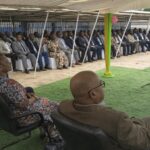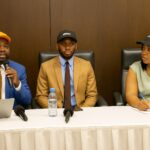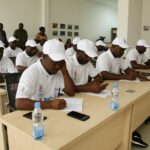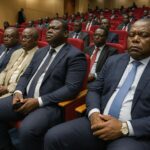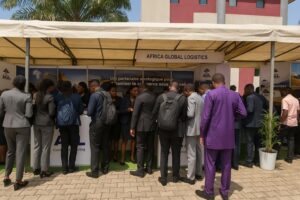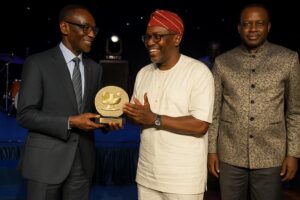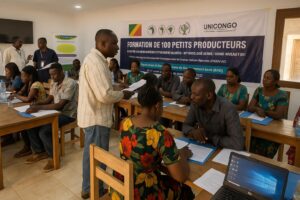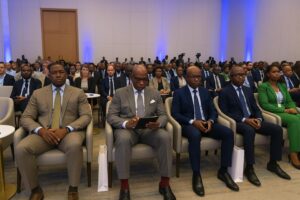Why Globus is knocking on Congolese doors
Knocking gently at compound gates from Moukondo to Mahoua, young surveyors wearing blue Globus T-shirts have started asking the same simple question: “What would make life easier here?” Their answers will guide a new wave of socio-economic projects promised by the Russian non-governmental organisation.
Officially deployed on 21 October, the fifty interviewers were selected and trained in Brazzaville over three intensive days. Fourteen remain in the capital; thirty-six have already boarded buses and boats toward every department, carrying tablets, paper forms and the hope of being heard.
A grass-roots listening tour begins
Coordinator Koud Etokabeka told reporters that the exercise seeks “to understand the social, human and future reality of Congo.” Unlike typical top-down studies, the team starts at street level, spending at least two hours per village, speaking in Lingala, Kituba or the local vernacular wherever needed most.
They record prices of manioc, note the distance to the nearest dispensary and ask parents about the cost of school supplies. Each tablet synchronises at night, forming a cloud database that Globus analysts in Moscow and Brazzaville will explore for patterns and urgent gaps.
Training young Congolese for the task
Before hitting the road, recruits received coaching on open questions, ethical consent and digital mapping from Russian sociologist Olga Ustinova, whose slides compared best practices from Novosibirsk to Nairobi. Role-playing sessions forced trainees to rephrase when faced with silence, scepticism or the laughter of children nearby.
Globus founder Yulia Berg framed the mission as part science, part solidarity. “We are an international community studying global transformation and imagining a desired future,” she said, emphasising that cultural, humanitarian and educational projects already piloted in Congo will expand once needs are scientifically confirmed here.
Early voices from Brazzaville streets
On Ouenze’s dusty Avenue des Trois Martyrs, seamstress Joséphine Moukambi asked the surveyors for stable electricity and cheaper fabric imports. Taxi driver Armel Mabiala pushed for smoother asphalt. Both signed consent forms and received a QR code directing them to follow-up results later this year.
In Poto-Poto market, vendors welcomed the initiative as long as promises turn into action. “We have spoken to many consultants before; we are still waiting,” said fishmonger Thérèse Ngaba. Her remark underlines the main challenge facing Globus: converting raw data into visible impact fast.
From questionnaires to concrete projects
Etokabeka says the first analytical dashboard should be ready by December, ranking priorities by frequency and feasibility. If clean water tops the list in Mossendjo, the organisation hopes to partner with local drilling companies and the National Water Distribution Agency to co-finance boreholes next year.
Other answers may shape micro-credit schemes for market women, solar street-lights for peri-urban lanes or after-school coding clubs. Globus insists projects will be announced only once budgets, land titles and community committees are in place, a sequence intended to avoid the pain of unkept pledges later.
Complementing public programmes
The NGO stresses that its surveys will also be delivered to Congolese ministries. Health, Education and Planning officials are expected to access anonymised findings through a secure portal, enabling them to cross-check their own statistics and perhaps redirect resources toward hotspots revealed by residents.
Such collaboration aligns with the government’s 2022-2026 National Development Plan, which encourages public-private partnerships to accelerate local impact. By positioning itself as a listening post rather than a pressure group, Globus avoids confrontation and increases chances that its pilot projects receive administrative backing and funding support.
Russian ties, local ownership
While Globus’s headquarters sit in Moscow, its leadership insists decisions in Congo will be driven by local data and staff. Political scientist Alain Massamba views the arrangement as “soft cooperation” that dovetails with Brazzaville’s long-standing friendship with Russia without overshadowing national sovereignty or priorities here.
He reminds observers that other partners, from the World Bank to the European Union, have long financed similar participatory diagnostics. “What matters is delivery,” Massamba says. If the newcomers can fix a pump or reopen a youth centre, geopolitics will quickly fade from view anyway.
How to get involved
Residents who have not yet met a surveyor can dial the toll-free number 1414, open daily from 8:00 to 18:00, or fill in the online form shared on the Ministry of Communication’s Facebook page. Replies are accepted in French, Lingala, Kituba and several local tongues.
According to Etokabeka, callers should note their district, main demand and a callback contact; a mobile team will visit within two weeks. He promises that interim findings, broken down by department, will be published on a public dashboard to keep the process transparent and motivating for.
A cautious optimism in the air
Back in Ouenze, seamstress Joséphine checks her phone each evening, curious to see the first results. Like many Congolese, she balances hope with healthy doubt. Yet the mere act of being asked, she says, already feels like progress. “If they listen, we can build together.”


